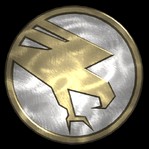http://web.archive.org/web/20240512204543/https://en.wikipedia.org/wiki/Nuclear_weapon_design
(Archive link in case it’s changed.)
This article is a surprisingly entertaining read for a few reasons:
- one or more people who wrote it clearly have very strong opinions about how nuclear weapons should be built
- the article contains a surprising amount of detail, including stuff that seems like it’d be classified or at least censored
- due to both of the above, there’s a ton of
[]that I doubt will ever be resolved
Most of the information is vague enough that you can’t do anything with it. I studied how nukes work for a high school presentation about the Demon Core a couple years ago, and it definitely seems weird to be allowed to know these things, but realistically speaking how is your average joe going to obtain the industrial capability to do anything with this knowledge, especially without killing themselves first.
I’m a lot more concerned about nuclear-capable private billionaires, when it comes to this knowledge.
That’s classist. Anyone can be nuclear capable if they put a little effort into it.
Well he had a sad ending
That’s what the USA is
Having talked about this same questiom with a family member who was in the field of nuclear engineering, what he told me basically boiled down to this:
It is fairly accurate, but not actually as detailed as it seems. There are several major obstacles that variously will stump you, get you killed, and/or put you on the radar of a national security apparatus.
But yeah, although not exactly “easy,” the basics apparently aren’t that complicated to work out if you know the science.
I actually wonder how much in the article is actually deliberate misinformation meant to trip up anyone trying to build their own device.
For example, this bit caught my attention:
In modern weapons, the neutron generator is a high-voltage vacuum tube containing a particle accelerator which bombards a deuterium/tritium-metal hydride target with deuterium and tritium ions. The resulting small-scale fusion produces neutrons at a protected location outside the physics package, from which they penetrate the pit.
That seems really finicky to me.
this makes sense if you consider timescales involved
It is finicky. That’s why only a handful of countries have actually managed to create their own thermonuclear warheads. It’s more about being able to build the needed infrastructure and acquire the source material than understanding the physics.
there’s about zero public information about interstage for example
As far as I understand it, nukes are pretty easy to put together with modern tech. The problem is finding enough fissile material of the right grade. That takes a massive industrial effort.
yeah this is not as surprising as it looks like
between pure fission design and thermonuke for a militarily relevant yields, say, 100-500 kt range, both designs are in principle working, but thermonuke is both compact and derives most of energy from cheap materials (natural to moderately enriched uranium and lithium deuteride). This is important if you remember that this thing has to fit in an ICBM
thermonukes have an extra advantage that they’re staged, that means dial-a-yield becomes possible - not all parts have to be used
And it is even more environmental friendly ;-)
Dude that entire Wikipedia article is a wild ride. It has got to be one of the most bizarre Wikipedia articles I have ever read. I remember reading it a while back and thinking, wow, some guy that knows about this stuff inside and out just wrote an article about how to develop a nuke. It’s a walkthrough on building out a nuclear program. The level of detail in it is astonishing. I’m very happy to live in a world where I can just access whatever information I want.
This article needs to be nuked because it’s just editorial jib-jab. [citation needed]
i was also surpised tbh, its much more thorough about both materials and reasoning (although it could all be false). Also very strong opinions about who built first thermonuclear, with whole paragraph discussing it.







